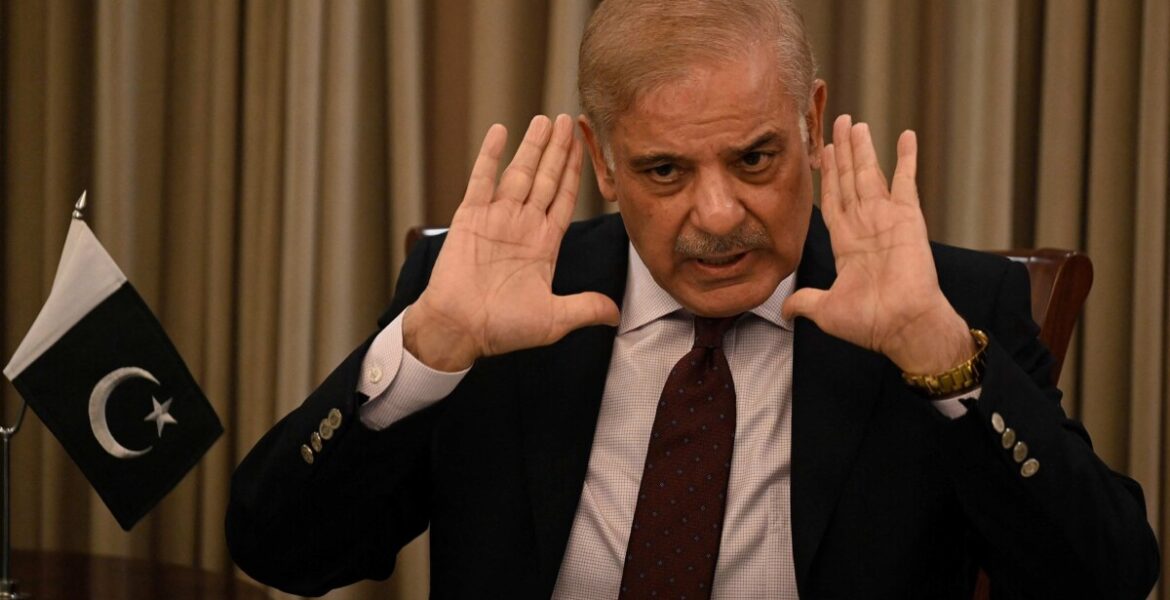The Pakistan Army has compelled the outgoing Shehbaz Sharif government to allow its business empire to grow further without any legal scrutiny as well as silence all its critics, most of all from the Services. Intelligence agencies have been given additional draconian powers to silence any critic.
The recently approved amendments to the Pakistan Army Act and the Official Secrets Act, pushed through without any discussion and in great haste, underlined the army’s desperate move to give itself a legal cover for its businesses and action against dissenting voices within the force as well as others.
It is not known what the Shehabaz Sharif-led PDM government would get in return. However, rubber Stamping of several laws by the Shehbaz Sharif government a few weeks before the remitting office does indicate a quid pro quo.
What is more galling is the utter silence in the media as well as in the civil rights community, except the Aurat March leadership, over these laws which restrict free and fair politics, freedom of expression and objective criticism of the government as well as security forces.
The most serious of the recent amendments is the manner in which patently undemocratic clauses were added and voted in the Pakistan Army (Amendment) Act, 2023, giving extended powers, encompassing “unauthorised” disclosure, electronic crimes and defamation for anyone, the army, giving at the same time the Chief of Army Staff unquestionable power to punish those criticising the army in any manner whatsoever.
No less severe are the amendments made to the Official Secrets Act 1923, redefining critical terms like “document” to prosecute anyone transmitting through any means news related to the military’s procurements and capabilities. The definition of ‘Enemy’ has been changed to prosecute anyone found indulging in any acts prejudicial to the safety and welfare of Pakistan. In essence, the army as well as intelligence agencies now wield powers to detain, charge and punish anyone found to be critical of the armed forces or political leadership.
The amended Army Act proposes five years of imprisonment for disclosing sensitive information pertaining to the security of the country or the Pakistan Army. The key phrase here is “Pakistan Army“. It means any one criticising the army in any manner, through any medium, is liable to be prosecuted. Unless the Chief of Army Staff has approved such a move, a ridiculous clause since it is clear that if the Army chief were to approve any such actions, he too shall be held accountable under the same law!
Even more restrictive amendment is Section 26-B, which forbids any person subject to the Army Act from engaging in any kind of political activity for two years from the date of their “retirement, release, resignation, discharge, removal or dismissal from the service”. This means any army officer or soldier is not entitled to indulge in any political activity, through any means, within two years of his retirement or discharge. This is a clear move to undermine Imran Khan’s considerable support among the military personnel and families.
The amendment makes it even tougher for military personnel who have “remained posted, employed, seconded, tasked or otherwise attached on sensitive duties”. They are forbidden from taking part in political activity of any kind within five years from the date of his retirement or discharge.
Three other sections tightens the noose further–Sections 55-A (conflict of interest), 55-B (electronic crimes) and 55-C (defamation).Section 55-A forbids any persons subject to the Army Act in the past five years from “directly or indirectly enter[ing] into employment, consultation or other engagement with an entity having conflict of interest” with the activities of the Pakistan Army or its affiliates. Of course, these clauses can be circumvented if the said persons had prior approval from the COAS.
Section 55-B states that any person, who is or has been subjected to the Army Act, and commits an offence under the Prevention of Electronic Crimes Act (Peca), 2016 “with the malafide intention to undermine, ridicule, or scandalise the armed forces of Pakistan,” shall be held accountable and punished. This means no army personnel can dare raise a finger against the army or its senior Generals or actions in any medium. It is the end of social media campaigns which many retired personnel have been running on behalf of PTI.
Likewise, Section 55-C stated that a person subject to the Army Act, who “ridicules, scandalises, brings into hatred or otherwise attempts to lower the armed forces of Pakistan or any part thereof in the estimation of others shall […] be punished with imprisonment for two years or fine or both. In essence, all these three clauses have effectively shut up any criticism of the army.
Two other clauses– Section 176-AA (power to issue instructions) and Section 176-C–highlights how powerful the Chief of Army Staff has become. The first clause h states that the COAS may “from time to time, make and issue instructions for carrying into effect the provisions of this Act and the rules and regulations made thereunder, provided that all such instructions already made and issued shall always be deemed to have been validly made and issued under this act”. The second clause gives the COAS the power to “ delegate any of his powers and functions conferred by, or delegated under this act, to any officer or authority subordinate to him”. This means he can delegate such authoritarian rules to his subordinate officers, mostly likely in the ISI to hunt down the dissenters within the force.
The second thrust of the amendment is to give added legal cover to the army’s business empire. In the Section 175-E (national development), it has been proposed that the “Pakistan Army may, upon direction or with the concurrence of relevant authorities of the appropriate government in the prescribed manner, directly or indirectly, carry out activities related to, inter alia, national development and advancement of national or strategic interest”.
The amendments also include clauses giving the newly introduced clauses retrospective as well as overriding effect.


